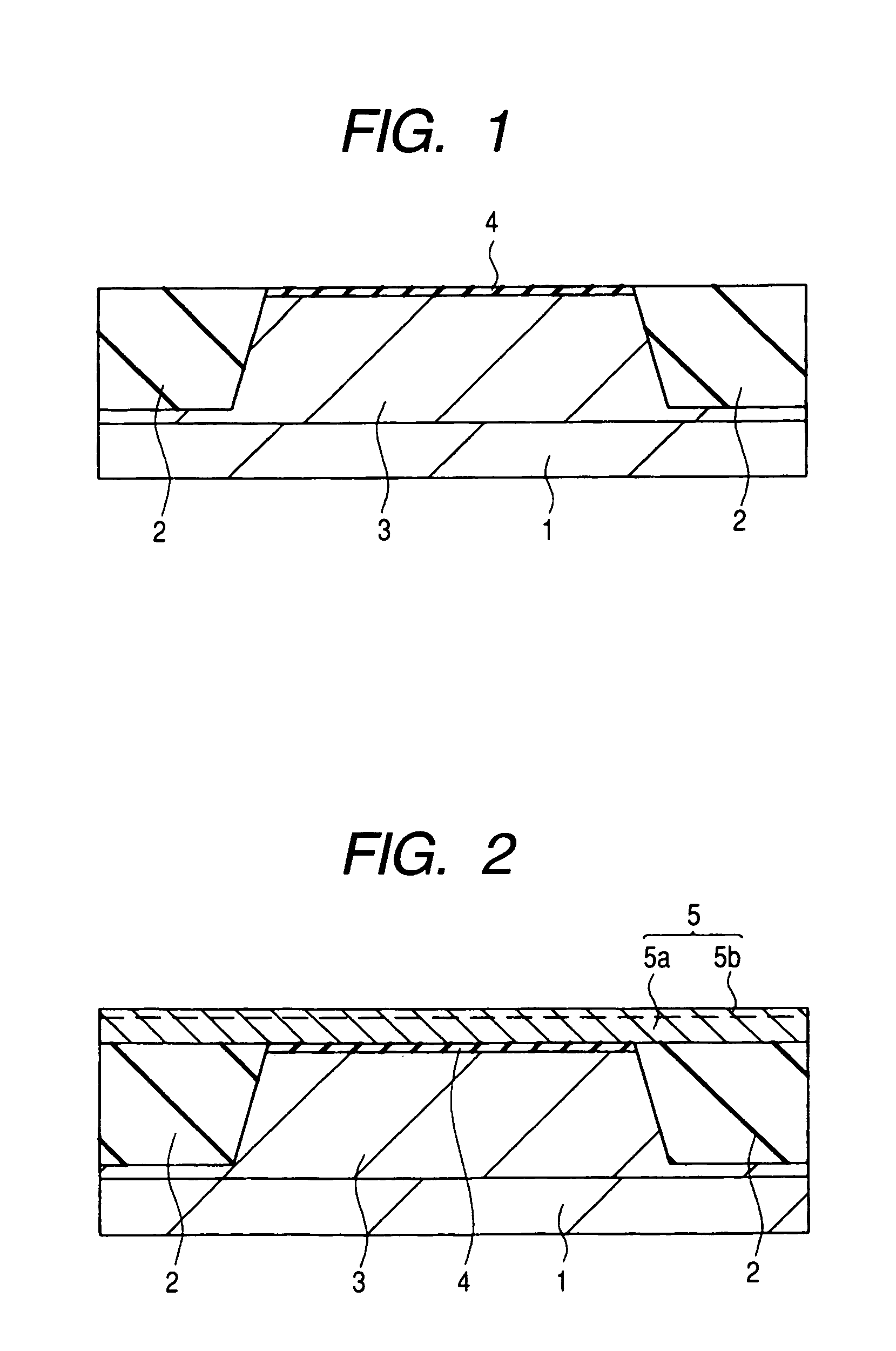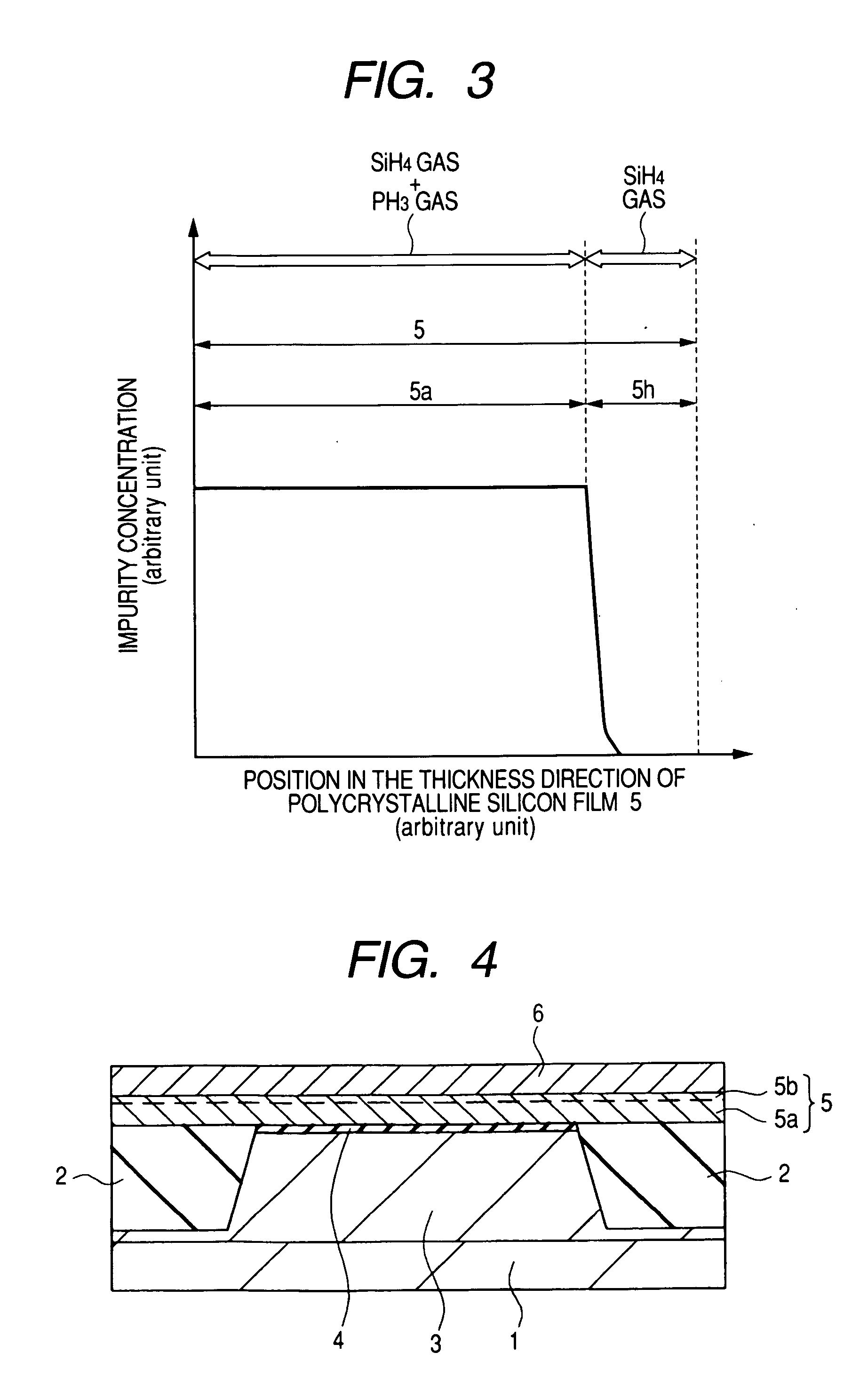Method of manufacturing a semiconductor device
a manufacturing method and semiconductor technology, applied in the direction of semiconductor devices, electrical devices, transistors, etc., can solve the problems of lowering the reliability of the semiconductor device, the dielectric breakdown resistance of the gate insulating film, etc., to improve the reliability, improve the electrical properties, and improve the performance
- Summary
- Abstract
- Description
- Claims
- Application Information
AI Technical Summary
Benefits of technology
Problems solved by technology
Method used
Image
Examples
embodiment 1
[0062] (Embodiment 1)
[0063] A method of manufacture of a semiconductor device according to this Embodiment will be described with reference to the drawings. FIGS. 1 and 2 are fragmentary cross-sectional views of a semiconductor device according to one embodiment of the present invention, for example, a MISFET (Metal Insulator Semiconductor Field Effect Transistor), during its manufacture.
[0064] As illustrated in FIG. 1, an element isolation region 2 is formed over the main surface of a semiconductor substrate (semiconductor wafer) 1 made of p type single crystal silicon having a specific resistance of about 1 to 10 Ωcm. The element isolation region 2 is made of silicon oxide and is formed, for example, by the STI (Shallow Trench Isolation) or LOCOS (Local Oxidization of Silicon) method. In this Embodiment, the STI method is employed for the formation of the element isolation region. In other words, the element isolation region 2 is formed by embedding a silicon oxide film in a tren...
embodiment 2
[0104] (Embodiment 2)
[0105]FIG. 15 is a fragmentary cross-sectional view of a semiconductor device according to another embodiment of the present invention during its
[0106] manufacturing step. In this Embodiment, the manufacturing steps as illustrated in FIG. 1 in Embodiment 1 can be similarly employed, and so a description thereof is omitted, and steps subsequent to those as illustrated in FIG. 1 will be described next.
[0107] After the formation of the structure as illustrated in FIG. 1, a polycrystalline silicon film 5c is formed over the semiconductor substrate 1, more specifically, the gate insulating film 4 as illustrated in FIG. 15. The polycrystalline silicon film 5c is composed of polycrystalline silicon (doped polycrystalline silicon) doped with an impurity (for example, phosphorus (P)). The polycrystalline silicon film 5c can be formed, for example, by CVD and it can be formed by introducing monosilane (SiH4) and phosphine (PH3) gases into a film forming chamber of a fil...
embodiment 3
[0118] (Embodiment 3)
[0119]FIG. 20 is a fragmentary cross-sectional view of a semiconductor device according to a further embodiment of the present invention during its manufacturing step. In this Embodiment, the manufacturing steps as illustrated in FIG. 1 in Embodiment 1 can be similarly employed, and so a description thereof is omitted, and steps subsequent to those as illustrated in FIG. 1 will be described next.
[0120] After the formation of the structure as illustrated in FIG. 1, a polycrystalline silicon film 5e is formed over the semiconductor substrate 1, more specifically, the gate insulating film 4. The polycrystalline silicon film 5e can be formed, for example, by CVD.
[0121]FIG. 21 is a graph showing an impurity concentration distribution of the polycrystalline silicon film 5e in its thickness direction (a direction vertical to the main surface of the semiconductor substrate 1) after formation (deposition) and it corresponds to FIG. 3 of Embodiment 1. In FIG. 21, the ab...
PUM
| Property | Measurement | Unit |
|---|---|---|
| thickness | aaaaa | aaaaa |
| temperature | aaaaa | aaaaa |
| breakdown voltage | aaaaa | aaaaa |
Abstract
Description
Claims
Application Information
 Login to View More
Login to View More - R&D
- Intellectual Property
- Life Sciences
- Materials
- Tech Scout
- Unparalleled Data Quality
- Higher Quality Content
- 60% Fewer Hallucinations
Browse by: Latest US Patents, China's latest patents, Technical Efficacy Thesaurus, Application Domain, Technology Topic, Popular Technical Reports.
© 2025 PatSnap. All rights reserved.Legal|Privacy policy|Modern Slavery Act Transparency Statement|Sitemap|About US| Contact US: help@patsnap.com



